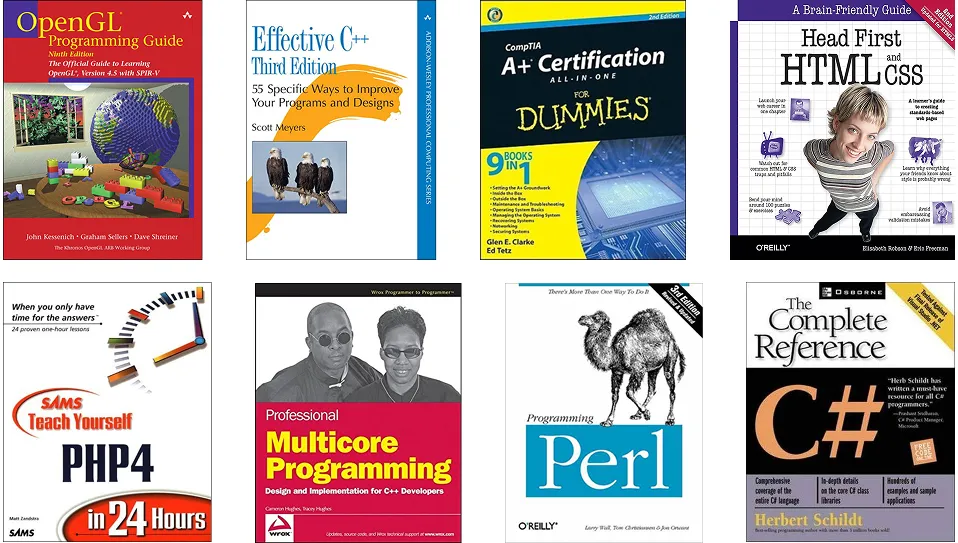If you’re a software engineer and you’re feeling anxious, disoriented, or vaguely defensive lately — you’re not alone.
AI is changing how we build things. Fast. And for many developers, it’s triggering a new, uncomfortable realization: I’m going to have to learn a whole bunch of new stuff.
If you’re over 30, there’s a good chance the current software development landscape is the only one you’ve ever really known. You mastered the tools. You built a career. You might have even picked up kids and a dog and plants along the way. And now you’ve expected to learn how to “vibe code” with an LLM in your free time?
But developers have been here before. And while the tools might be different, the sentiment feels familiar.
Over 20 years ago, I got an early look at what this moment looks like, because I watched it happen to someone else – years before my career even started. It’s a brief event that’s given me comfort during times like these, so I’m sharing in hopes other people find it mildly helpful.
So let’s go back.
The bookstore job
In my second year of university, I needed money. So one day between classes, I printed off a resume and went looking for a job.
This was before online job boards were a thing. “Looking for a job” literally meant wandering around downtown Toronto, walking into stores, asking for the manager, and awkwardly thrusting a resume into their hands.
Only one place got back to me: Indigo, a big-box bookstore inside the Eaton Centre, Toronto’s busiest mall. (For US readers: Indigo is basically our Barnes & Noble.) They were ramping up for the holidays and needed extra help. The pay was just above minimum wage, but I didn’t mind. A bookstore seemed as good a part-time job as one could get.

My new manager, Greg, saw on my resume that I was studying Computer Science and decided to place me in the Business and History section — home to the store’s decently large collection of programming and IT books. He figured I might be able to help customers. Or at least stay awake.
This was the early 2000s, when programming books were still how people learned to code. O’Reilly, Microsoft Press, SAMS. The red and yellow ones with unflattering portraits of the authors on the cover. We carried hundreds of titles like Java Servlets in 24 Hours, CompTIA A+ Certification, and HTTP: The Definitive Guide. This was a big book store, and so this was also a big section.

The job itself was pretty good. I shelved new arrivals, rescued books that had been abandoned in the wrong sections, and helped people find things — or if we were out of stock, put holds on titles at other stores.
It was also just kind of nice being physically around the thing I was studying. Not just the books, but also the people working in industry who came to buy them.
“What’s wrong with the old stuff?”
One day I noticed a guy standing in the programming section. In my memory he’s in his 40s, but back then I thought every “grown up” looked old, so he could have easily been 30-35. But what I remember most is what he was doing: holding a handful of books, and just … staring.
Me: “Can I help you find something?”
Him, still facing a wall of books, unclear if he’s even speaking to me: “… They expect us to keep changing all the time … What’s wrong with the old stuff? It works perfectly fine.”
It’s a blurry memory, but I always pictured him like the software engineer equivalent of Michael Douglas in Falling Down — just one requirements change away from completely losing it.
Eventually he turned around. He explained that he’d spent his whole programming career writing Java. Now his company had decided to switch to C# and .NET, which had only recently come out. He wasn’t here to opportunistically learn a new language. He was here because he was worried he would be made redundant, and he wasn’t sure where to start.
I was obviously still in school and had very little to contribute on the topic of which .NET book to choose, but he seemed perfectly content to dump his feelings on me. I tried my best to nod, follow along, and empathize with his grievances … but I had no idea what to do or say.
This went on for maybe 5-10 minutes before I saw an opportunity to apologetically duck away. Eventually he picked out some titles, stopped by to say thanks – for the free therapy, I think – and headed towards the checkout counter.
JavaScript is the new Old
I’ve thought about that interaction many times over the past 20+ years. It was the first time I met a programmer who was just… tired of having to learn something new. Years before I was ever paid to write a line of code myself.
Fast forward to today, and you can’t open X or Reddit without reading dozens of similar-sounding anxious comments about AI. “The hype is overblown.” “The old ways still work.” “Time to learn how to farm.”
Maybe. But consider that the book store conversation happened around 2003, when Java was only ~7 years old. (The first public release of Java was in 1996.)
People complain that JavaScript frameworks change too fast, but Next.js turns 9 this fall. React is already 12. And Vue.js is 11! (Need a practical example? Sentry has been a React app since 2015.)
Many JavaScript developers feel like things are always changing – but in reality, we’ve just had one of the most stable stretches in the ecosystem’s history. Seriously – the jQuery era was shorter!
In tech, change is the default
Since we’ve just gone through this relatively long and stable period, I think many developers right now are experiencing this “retooling threat” for the very first time.
You could have come out of college, learned React, gotten a job, and today be over 30 … and this software landscape is the only thing you’ve ever experienced! Sure you maybe had to go through 6 React Router upgrades (shudder), or had to learn TypeScript. But by and large how you’ve done your job has mostly been the same.
And now this big upheavel is happening in our industry, and it’s rightfully causing panic. The way that we build software is changing. Will all those arcane programming skills you picked up remain relevant?
The point of the bookstore story is this: change (and its accompanying anxiety) has always been a part of this industry. AI might be the biggest shift yet — but it’s still part of a longer pattern. And it won’t be the last.
Now is your moment to decide if you’re changing with it. And consider this: for all of his griping, the bookstore guy at least hit the books. Will you?


